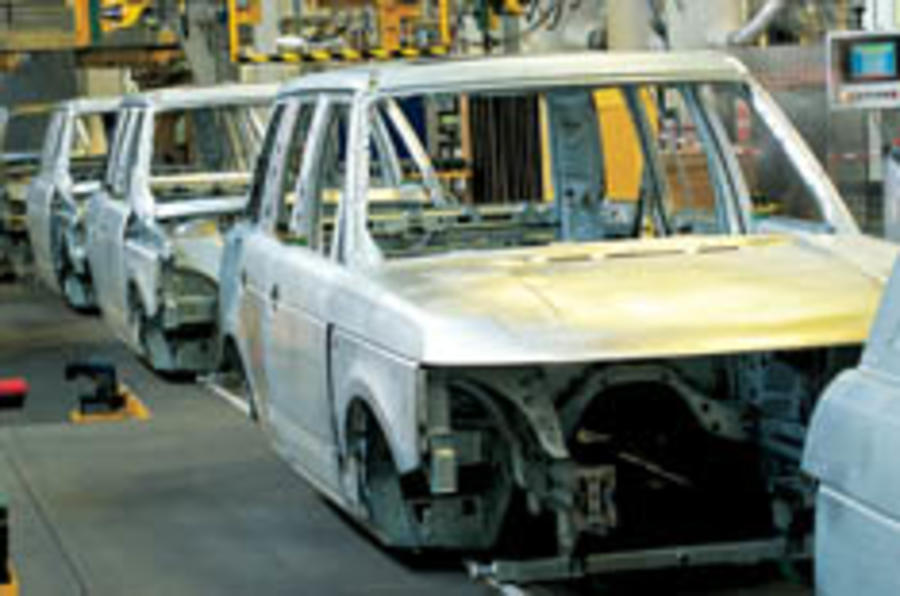The next generation of Land Rover models could be based on a new, rivet-bonded aluminium monocoque body.
Adopting the lightweight technology pioneered by Jaguar would fix one of Land Rover’s most pressing technical challenges: to build spacious and luxurious vehicles while reducing weight and improving fuel economy.
According to an inside source, the new Range Rover is pencilled in as the first all-alloy, monocoque-bodied 4x4 and is due around 2010.
“There’s no decision yet and we don’t have to decide for a couple of years, but it seems a logical step to investigate it,” said our source.
Land Rover is also exploring alloy construction for other models. The Discovery and Range RoverSport are both due for replacement two years after the Range Rover and there could be economies of scale gained by sharing the same alloy technology across the three models.
Until now, the next Range Rover had been expected to switch to Land Rover’s semi-monocoque steel T5 platform, the basis for the Discovery and the Range Rover Sport.
A 4.4-litre V8 version of today’s Range Rover weighs about 2700kg, but if Land Rover could engineer a tough enough structure to survive off road and benefit from the same 15 per cent weight saving that Jaguar claims, a new Range Rover could be targeted at around 2200kg.
A similar improvement in fuel economy could lift consumption from 18mpg to 22mpg, bringing a welcome cut in carbon dioxide output.






Add your comment